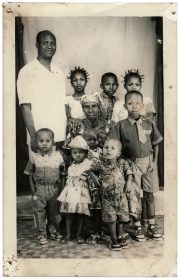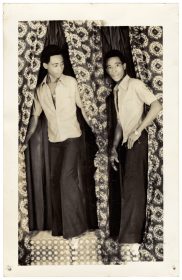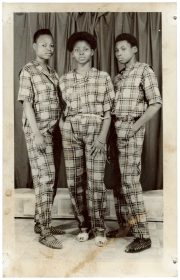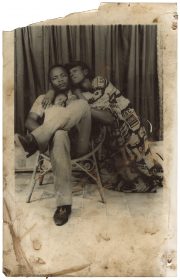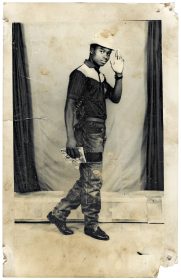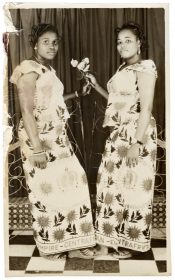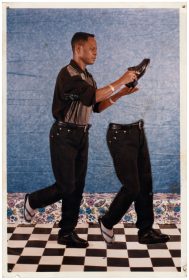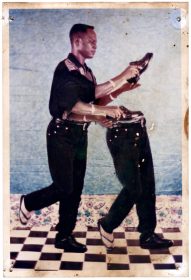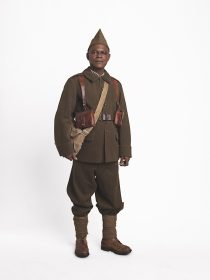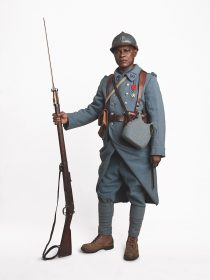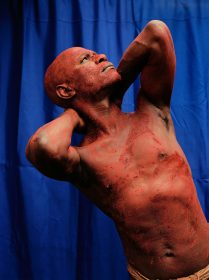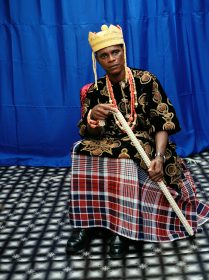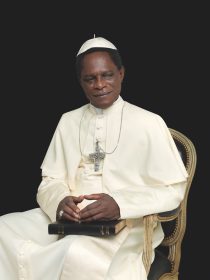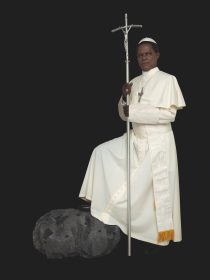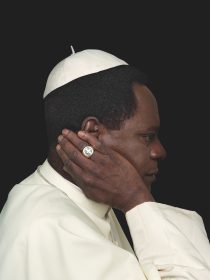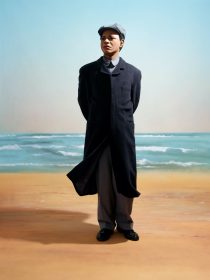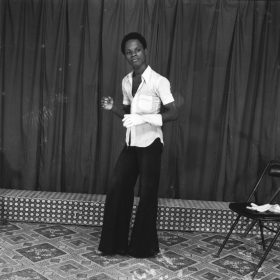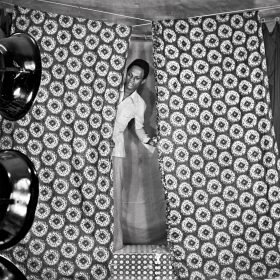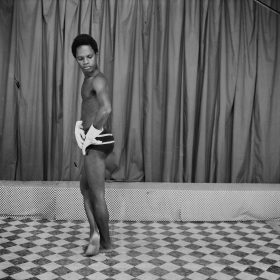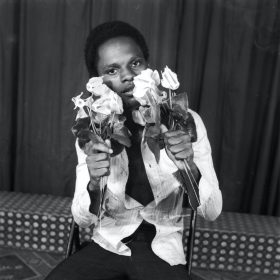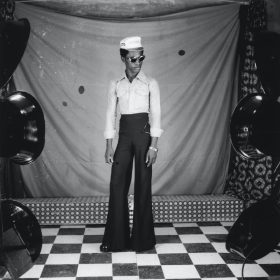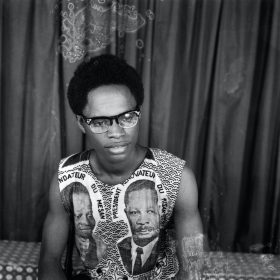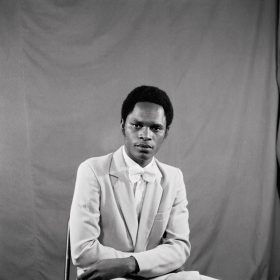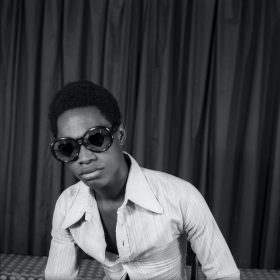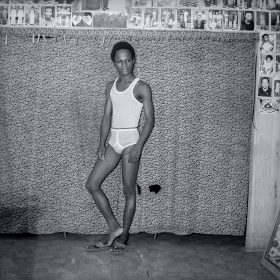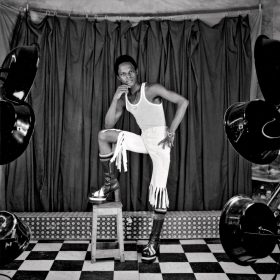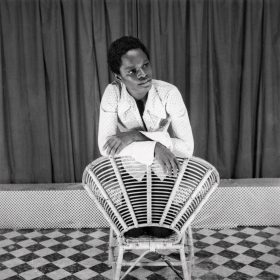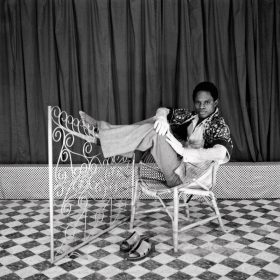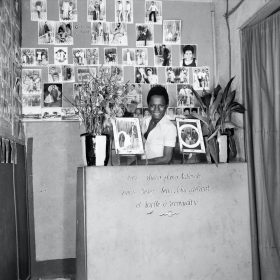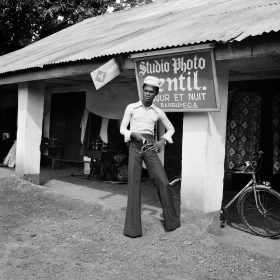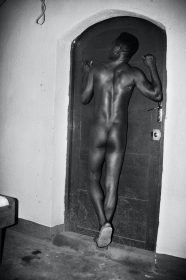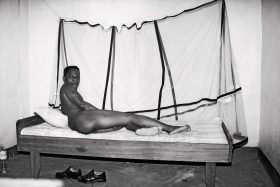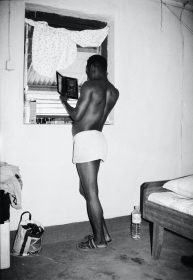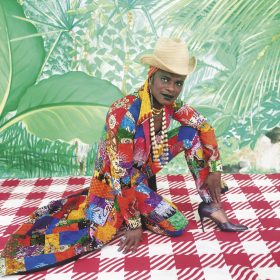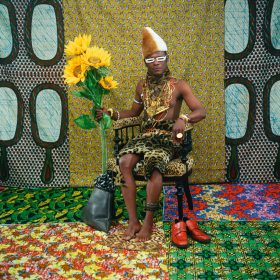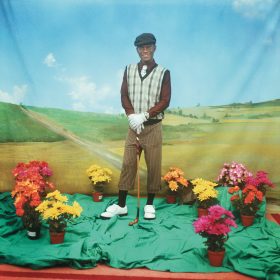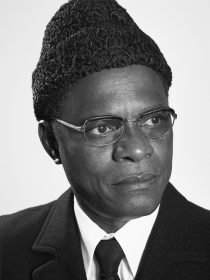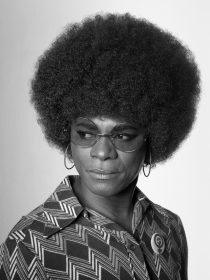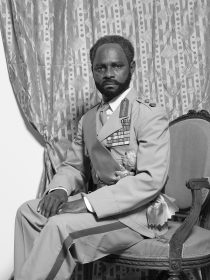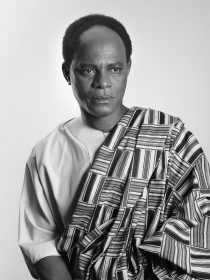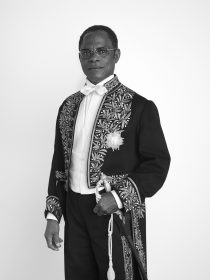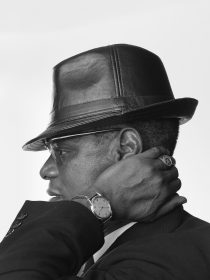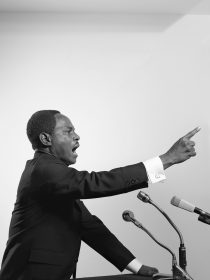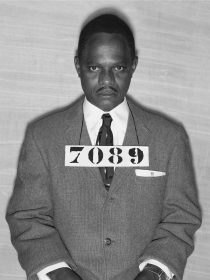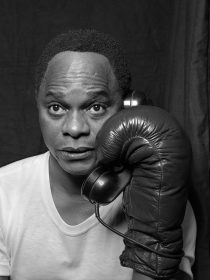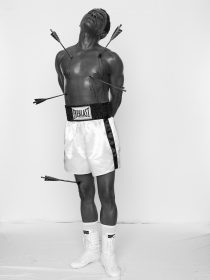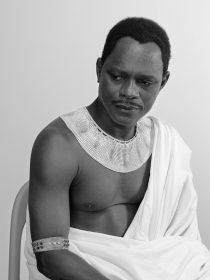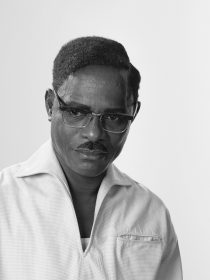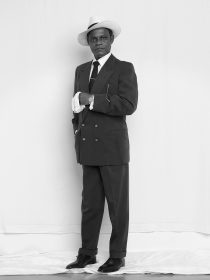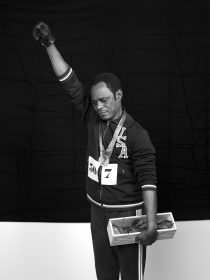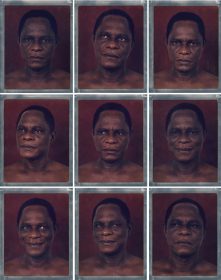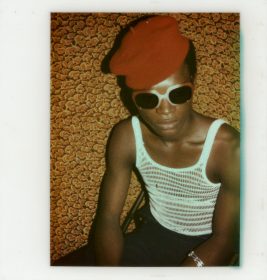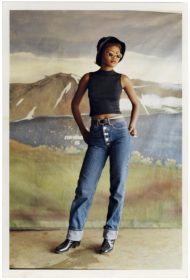French, Cameroonian, Central African Republic, b. 1962; lives and works in Bangui, Central African Republic and Paris, France
In 1975, at the age of thirteen, Samuel Fosso opened his own photography studio in Bangui, the capital of the Central African Republic. During the day, he made pictures for paying clients, but at night, to use up unfinished rolls of film, he turned the camera on himself and began creating expressive self-portraits. Fosso’s work from the 1970s, in which he references popular West African musicians and the latest youth fashions, addresses variations in African identity. His earliest photographs, which experiment with costume, pose, and lighting, display an instinct to create images opposed to the ethnographic visions of Africa and to the commercial imperatives of studio portraiture.
In his photographic practice, Samuel Fosso often utilizes gender-bending performances to satirize photographic and sexual norms. In the series Tati (1997), Fosso adorns his body with jewelry, high heels, and a colorful “exotic” slack suit to become La femme américaine libérée des années 70, who both mimics and magnifies the “black liberated woman” of America’s 1970s and returns her, mischievously, to the jungle from which she has allegedly emerged. In contrast, Le Chef qui a vendu l’Afrique aux colons
boldly refers to all the African chiefs who have sold their continent to the white man.
In African Spirits (2008), Samuel Fosso extends the impulse of his early studio self-portraits by reenacting historical imagery drawn from magazines and newspapers. African Spirits comprises portraits of Fosso posing as icons of the pan-African liberation and civil rights movements, including Angela Davis, Miles Davis, Martin Luther King Jr., Patrice Lumumba, Malcolm X, Nelson Mandela, and Kwame Nkrumah. These highly theatrical, often uncanny impersonations not only honor the figures who fought for civil rights and postcolonial independence, but also display how their mastery of self-styling for the media helped to shape and enforce political ideals. According to Fosso, African Spirits is an “homage to the leaders who have tried to liberate us, to give us back our dignity as Africans and as blacks.”
![Sf 2272 06]()
![Sf 2272 03]()
![Sf 2272 08]()
![Sf 2272 04]()
![Sf 2272 10]()
![Sf 2272 02]()
![Sf 2272 15]()
![Sf 2272 16]()
![SF 6859 02]()
![SF 6859 01]()
![Sf 2268 01]()
![Sf 2268 02]()
![SF 6855 01]()
![SF 6855 02]()
![SF 6855 03]()
![Sf 2270 01]()
![SF 133 4]()
![SF 128 08]()
![SF 131 6]()
![Sf 128 02]()
![Sf 128 01]()
![Sf 128 07]()
![SF 128 12]()
![Sf 128 03]()
![Sf 128 04]()
![SF 128 09]()
![SF 128 10]()
![SF 128 11]()
![Sf 128 06]()
![Sf 128 05]()
![Sf 2266 01]()
![SF 2266 03]()
![Sf 2266 02]()
![Sf-135-01]()
![Sf 135 02]()
![Sf 135 03]()
![Sf-590-02]()
![Sf-590-13]()
![Sf-590-08]()
![Sf-590-09]()
![Sf-590-05]()
![Sf-590-10]()
![Sf-590-06]()
![Sf-590-11]()
![Sf-590-12]()
![Sf-590-01]()
![Sf-590-07]()
![Sf-590-14]()
![Sf-590-04]()
![Sf-590-03]()
![SF 6195]()
![Sf 2272 01]()
![Sf 2272 14]()
